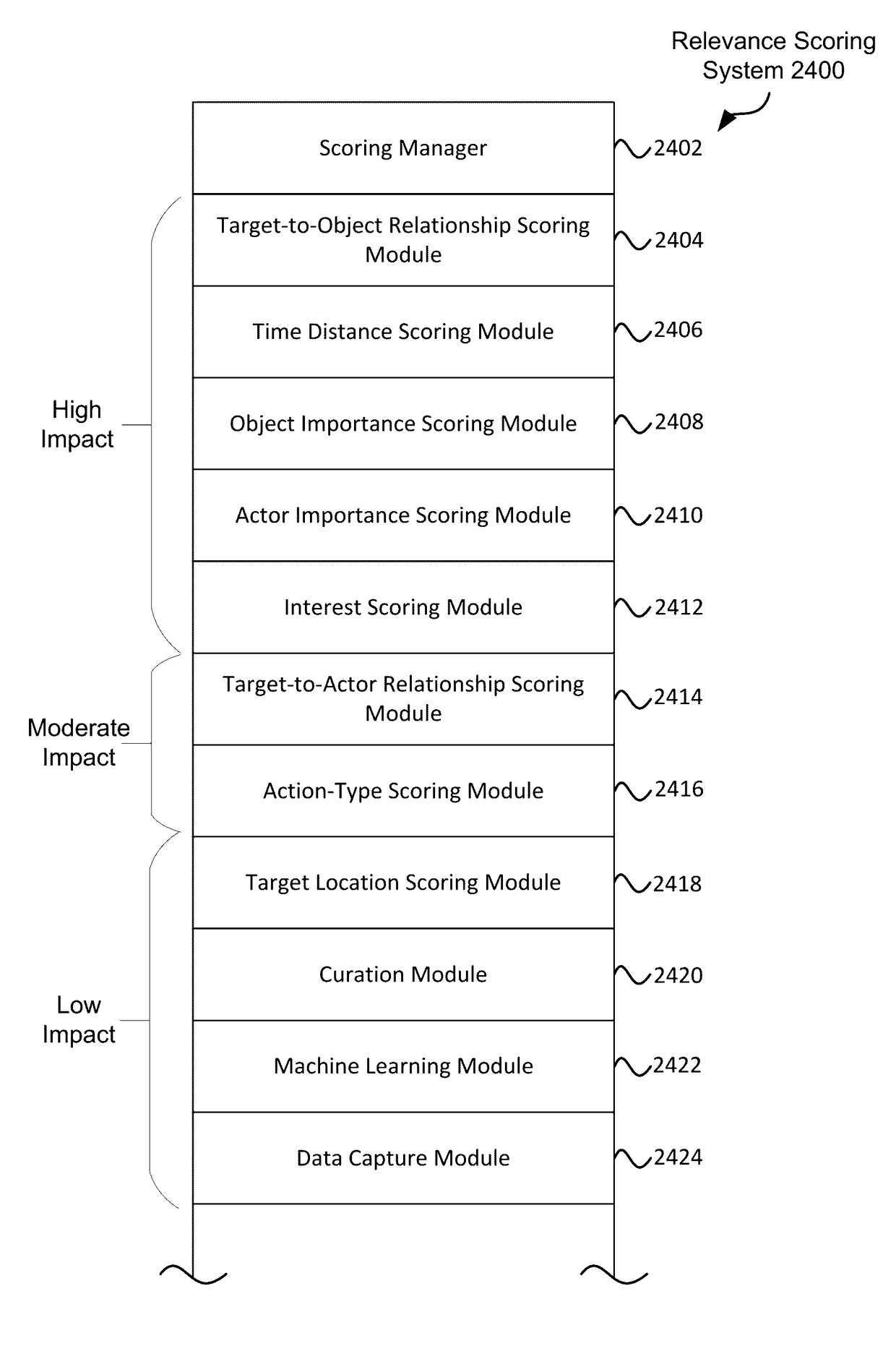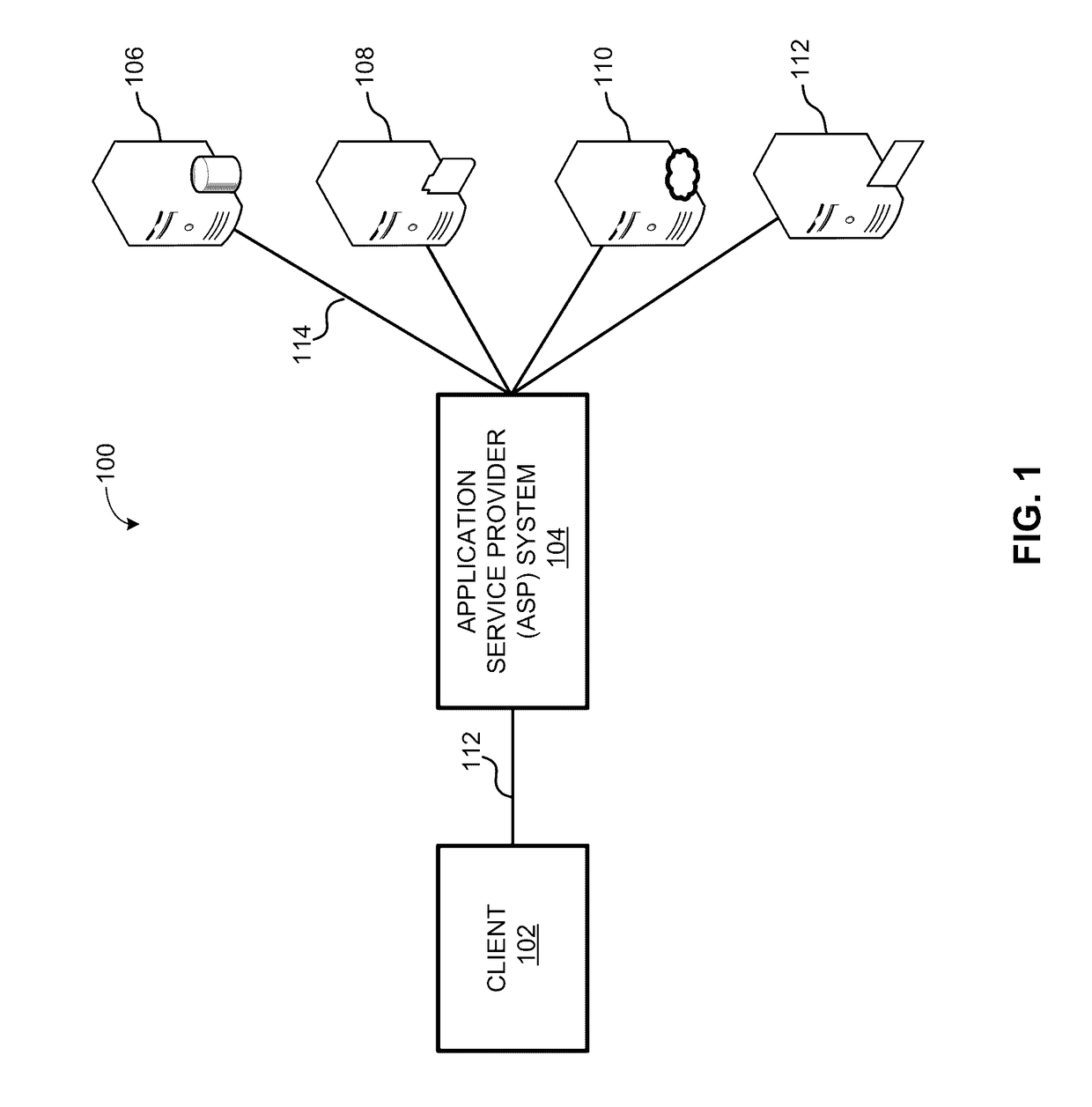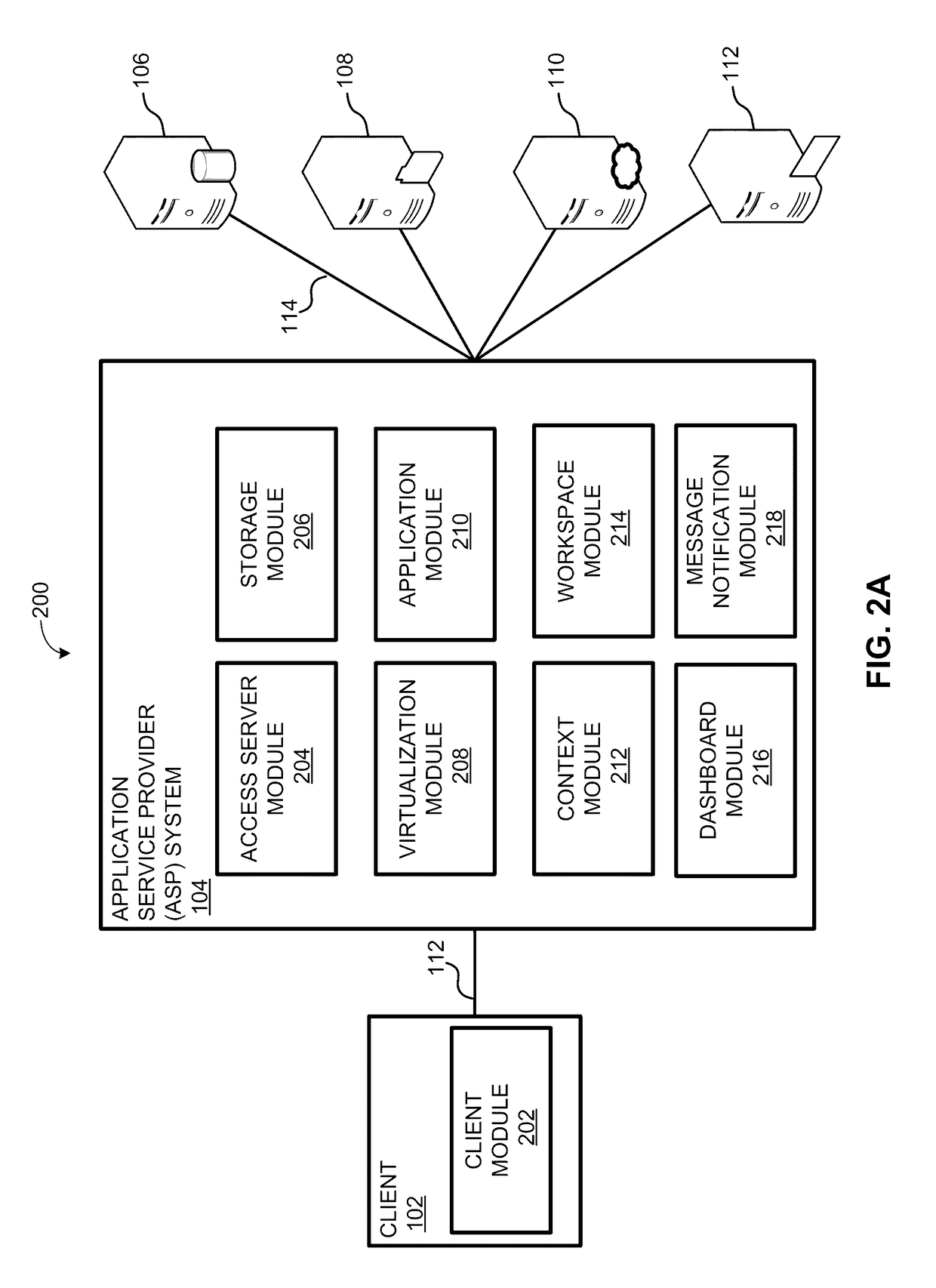Systems and methods for supporting social productivity using relevancy scoring
a social productivity and relevancy scoring technology, applied in the field of server-based computing, can solve the problems of limited traditional remote desktop computing, terminal server to provide the operating system with embedded access to a third-party, etc., and achieve the effect of supporting social productivity
- Summary
- Abstract
- Description
- Claims
- Application Information
AI Technical Summary
Benefits of technology
Problems solved by technology
Method used
Image
Examples
Embodiment Construction
[0082]Various systems and methods described herein relate to server-based computing and, more particularly, providing remote clients with collaborative features that support social productivity. In particular, various embodiments provide for systems and methods that can provide social productivity platform that can create or modify documents and other types of data content objects using collaborative efforts, possibly where the efforts are received through a social networking service. The systems and methods can, for example, create, review and share documents, spreadsheets and presentations from any device, using any cloud storage provider. When teams of users are collaboratively working on a document or other file, various systems and methods can connect each of the team users to the document or file, and maintain a buffer of comments, changes, or other events. For some embodiments, the systems and methods can maintain a separate history buffer for every data content object, or a ...
PUM
 Login to View More
Login to View More Abstract
Description
Claims
Application Information
 Login to View More
Login to View More - R&D
- Intellectual Property
- Life Sciences
- Materials
- Tech Scout
- Unparalleled Data Quality
- Higher Quality Content
- 60% Fewer Hallucinations
Browse by: Latest US Patents, China's latest patents, Technical Efficacy Thesaurus, Application Domain, Technology Topic, Popular Technical Reports.
© 2025 PatSnap. All rights reserved.Legal|Privacy policy|Modern Slavery Act Transparency Statement|Sitemap|About US| Contact US: help@patsnap.com



